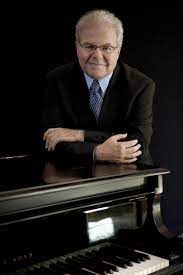DG now owns classical real estate on iTunes
mainDeutsche Grammophon has signed a longterm deal with Apple Music to have classical playlists curated by major artists.
For today’s launch at Salzburg, the pianist Daniil Trifonov, tenor Rolando Villazón and cellist Peter Gregson curated Apple Music’s three main composer stations: Mozart, Bach and Beethoven.
The DG Playlist will be regularly updated to include videos by DG stars. Check it out here.
Further plans include the first full visual opera on Apple Music – Gounod’s Roméo et Juliette from Salzburg 2008 with Rolando Villazón, conducted by Yannick Nézet-Séguin – along with a Salzburg video playlist, including the Mozart Gala in the composer’s 250th-anniversary year, featuring Anna Netrebko, Magdalena Kožená, Thomas Hampson, Daniel Harding and the Vienna Philharmonic.






Comments